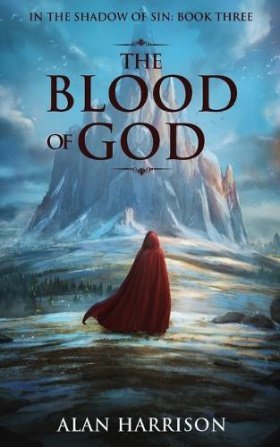“The Lord’s word is not to be questioned.”
“Even in the hypothetical?”
Ruairí paused. “If there is a possibility that the Lord is wrong, then He is no god worth worshipping.”
Argyll gave up, silently gesturing Ruairí to bring him home.
Sounds to me like there is no god worth worshipping. They stopped abruptly as they approached the dark staircase. With a grunt of effort, Ruairí pulled the chair backwards, raising the front wheels into the air, and Argyll braced himself for an uncomfortable ascent.
Though if Seletoth could give me my legs back, I’d be the most devout Son there ever was.
Chapter 16:
The Silverback’s Reach
With the help of our native guides, we made significant progress northwards over the following months, fighting our way through traps and ambushes lain by those who opposed our landing. We razed numerous settlements to the ground, a decision that was not easy to make. Still, all dissent must be routed out, and with fewer places to call home, these Simians, as they name themselves, will have no choice but to capitulate.
As we forged northwards, the call of Seletoth grew stronger. We were getting close to Him, this much I was sure of.
We were met with a significant setback as we reached the northern mountains of this land. The natives had occupied and fortified important paths bypassing the mountains, halting our progress. We could have attacked them head-on with a high chance of success but would have taken significant losses as a result.
One of my generals found another way through the mountains, via a valley uncharted by the locals. Our Simian informants strongly objected, naming this valley a cursed, desolate place, but refused to tell us why. This was peculiar behaviour, for I had not known the natives to hold any of their land holy or sacred. So, against the advice of their counsel, I led my men through that valley.
A valley we would later name the Glenn.
The Truth, by King Móráin I, AC55
***
Fionn walked eastwards, his back to the morning sun, leaving the village of Roseán behind. However, the young mage paid little mind to where we walked. Eyes closed, his attention was turned inwards, towards a chorus of voices that rang out in his mind.
Halfwit! You left me for dead!
Alone and dead!
No light, no light! No lighter than the Holy Hell!
The Holy Hell would be a paradise compared to this fate.
Pain! Pain! Pain! Pain!
Fionn opened his eyes and saw that he had strayed from his path. He stood alone in an empty forest of decaying browns and blacks.
The young mage looked around, trying to find his way back to the path, when a whirring sound sang through the trees. A crossbow bolt struck his chest, bringing with it a sharp, searing pain. With a wheeze, Fionn fell to the ground.
“Oisín, you fool!” called a rough voice from the trees. Gasping for air, Fionn’s vision blurred. He heard heavy footsteps along the ground.
“I didn’t have a choice!” called another voice. “He was coming towards my hiding spot. And look at his cloak. He’s a mage!”
Fionn couldn’t tell how many there were, as two, perhaps three crouched down beside him. Fighting against his falling lids, Fionn closed his eyes.
“A mage, eh?” said the first voice. “Maybe he’ll fetch himself a ransom, if we play our cards right.”
“Not likely,” said a third voice. “Oisín may be a fool, but you can’t fault his aim. That there is a lethal shot, right through the lung.”
“Ah shit,” said the second voice. “It was meant to be a warning. I didn’t mean to kill him!”
“You didn’t,” said the first voice, sterner than the others. “He’s still breathing.”
***
“Do we really need to go through this much effort?”
“The gaffer is scared shitless of him. Says he’s a demon.”
“A demon? Come on now, he’s just a lad! A mage, as Oisín put it, right?”
“No. Mages die just like any other men. This one survived a pierced lung. Then the gaffer tied him up, put a spear through his heart, and a blade across his throat. Each time he just passes out and wakes a lil while later.”
Slowly, Fionn opened his eyes. Every bone in his body ached, agony tearing through his body with each breath. His thoughts struggled to form anything coherent, and for now, he had no idea where he was or how he ended up there.
He was on a boat, rocking across a still sea, surrounded by darkness. The vessel bore no lights, illuminated only by the waning moon overhead. Two figures stood on the deck. With backs turned to him, they spoke in hushed tones. Fionn noticed now he was bound to a stool, his hands tied behind his back, his mouth gagged with a cloth. At his feet, thick chains coiled around his ankles where a heavy iron sphere fastened them together.
What’s going on? thought Fionn. Another voice in his head cried out in pain, but Fionn did not understand its source.
“If it were up to me, we’d just bury him,” said one of the figures. “But the gaffer said it wouldn’t be enough. He said that there were stories from long ago, of the dead rising from their graves at the hands of a group of evil druids. He reckons the same is happening here.”
“He won’t be rising out of this grave, that much is for sure,” said the second. He turned to look at Fionn. “Hush now, he’s awake. Let’s get it over with.”

























